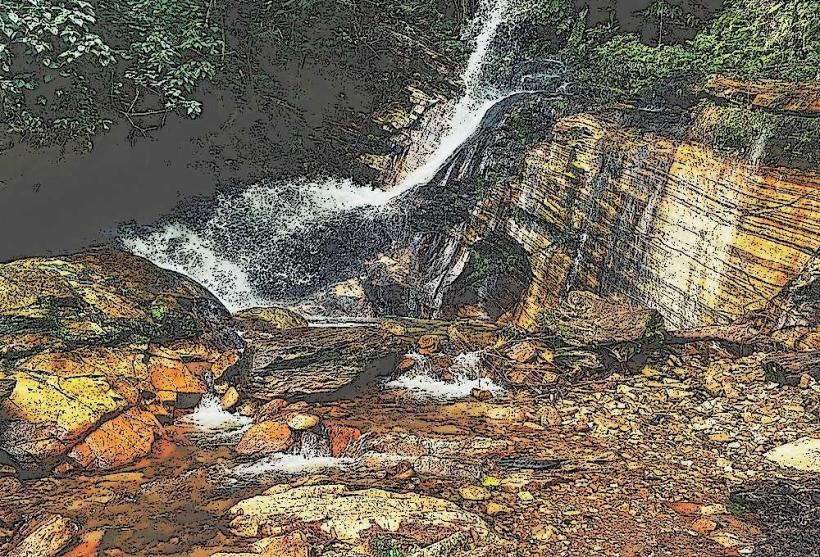Information
Landmark: Efon Alaye HillCity: Ekiti
Country: Nigeria
Continent: Africa
Efon Alaye Hill, Ekiti, Nigeria, Africa
Efon-Alaye Hill, located in Efon-Alaaye town in Ekiti State, southwestern Nigeria, is part of a dramatic and culturally rich landscape known for its rolling hills, lush greenery, spiritual sites, and historical roots. The hills dominate the town’s geography and have played a central role in its history, religious life, and tourism development.
Here’s a detailed overview:
1. Geographical Features
Hilly Terrain: Efon-Alaaye is one of the most elevated regions in Ekiti State. It is situated along the Yoruba Hills, a chain of hills running across southwestern Nigeria.
Elevation and Views: The hills offer panoramic views of surrounding forests, valleys, and towns. From their peaks, one can see sweeping vistas of Ekiti’s natural beauty, especially at sunrise and sunset.
Climatic Influence: The elevation brings cooler temperatures and frequent mist in early mornings, contributing to the region's fresh and invigorating climate.
2. Cultural and Historical Significance
Ancient Origins: Efon-Alaaye was established around 1040 A.D. by Obalufon Alayemore, a legendary king and former Ooni of Ife. He is said to have founded the town after leaving Ile-Ife, the cradle of Yoruba civilization.
Royal Heritage: The community has a well-established monarchy. The town is ruled by the Alaaye of Efon, whose palace is a focal point of cultural identity.
Festivals: Traditional festivals, including Ogun and Egungun festivals, are celebrated on and around the hills, with rituals performed at sacred sites on the slopes.
3. Spiritual and Religious Importance
Babalola Prayer Mountain: One of the most famous religious sites near Efon-Alaye Hill is the Babalola Mountain, named after Apostle Joseph Ayo Babalola, the founder of the Christ Apostolic Church. He is believed to have prayed and fasted extensively on this mountain in the 1930s.
Today, the mountain serves as a Christian pilgrimage site, attracting thousands for retreats, fasting, and revival meetings.
There are altars, prayer huts, and accommodation lodges built for worshippers who often stay for days or weeks.
Sacred Groves: Some areas of the hills are still believed to be inhabited by ancestral spirits and are sites for traditional religious practices.
4. Ecotourism and Outdoor Activities
Hiking and Exploration: The hills provide excellent hiking trails for both beginners and experienced trekkers. Routes vary in difficulty and offer encounters with waterfalls, caves, and natural rock formations.
Nature Observation: Birdwatching, plant studies, and nature photography are popular due to the area's rich biodiversity. Native species include tropical birds, butterflies, and medicinal plants.
Eco-Development Potential: There have been calls to further develop the area for sustainable ecotourism, while preserving its natural and spiritual heritage.
5. Local Economy and Community Life
Agriculture: The fertile hillsides support farming of crops such as cocoa, kolanut, yam, cassava, and plantain. Rainfall and cool weather help produce high-quality yields.
Crafts and Traditions: Local artisans make pottery, wood carvings, and textiles inspired by the surrounding nature and history.
Community Role: The hills are seen not just as landmarks, but as guardians of the town’s heritage, shaping identity and pride among residents.
6. Access and Travel
Location: Efon-Alaaye is accessible from Ado-Ekiti, the capital of Ekiti State, and also lies near the Ondo State border.
Road Access: Though hilly, the town is accessible via tarred roads, though interior hill paths require trekking or four-wheel-drive vehicles.
Best Time to Visit: The dry season (November–March) is ideal for exploring the hills, while the rainy season enhances the lush vegetation but may make trails slippery.
Conclusion
Efon-Alaye Hill is not only a geographical feature but a living symbol of history, spirituality, and identity. Its dramatic elevation, religious significance, and deep cultural roots make it a unique destination in southwestern Nigeria. Whether for pilgrimage, hiking, cultural exploration, or quiet reflection, the hills of Efon-Alaaye offer an enriching and memorable experience.



